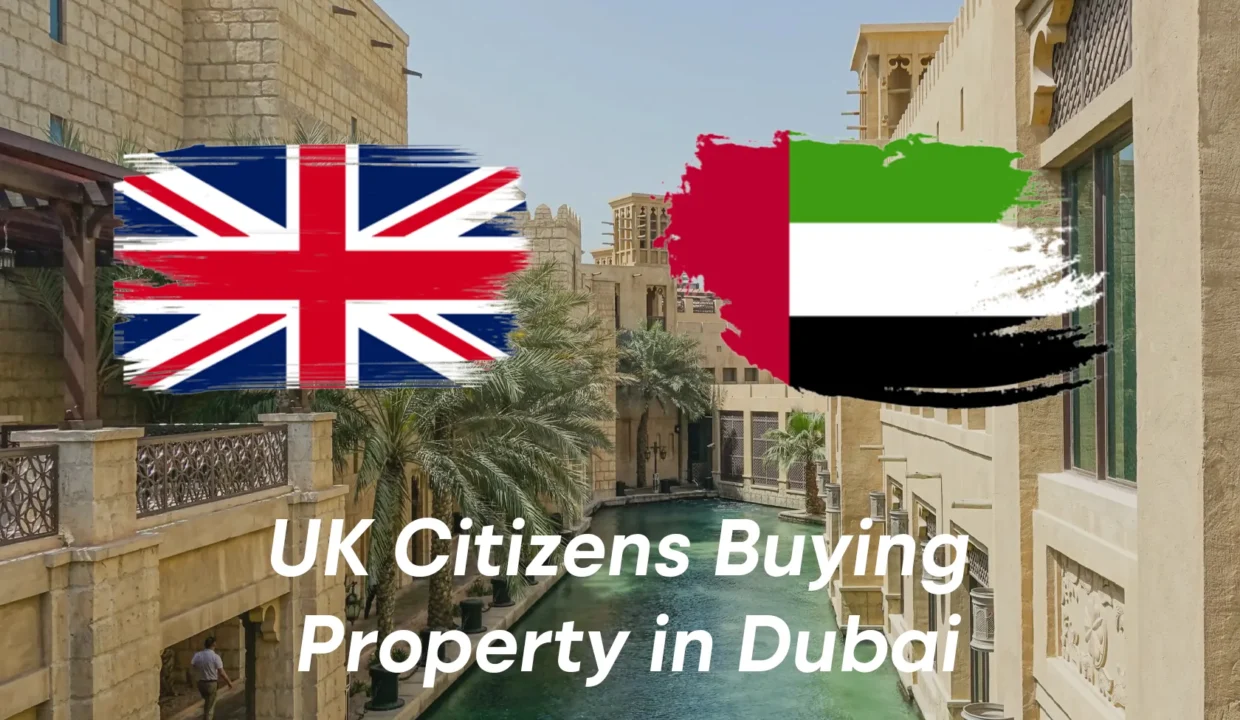A Comprehensive Guide for UK Citizens Buying Property in Dubai
Dubai, the glittering metropolis in the United Arab Emirates, has become a magnet for international investors, including those from the UK. Its allure is undeniable: a vibrant blend of futuristic architecture, luxurious living, and a tax-free environment makes it an attractive proposition for property ownership. Whether you seek a holiday haven, a rental income stream, or a permanent residence, Dubai offers enticing possibilities.
However, navigating the process of buying property in Dubai from the UK can seem daunting. This comprehensive guide aims to equip you with the knowledge and resources necessary to make informed decisions throughout your property acquisition journey.
Unveiling Your Dubai Dream: Investment Goals and Considerations
Before embarking on this exciting venture, it’s crucial to define your investment goals. Here are some key questions to ponder:
- Primary Residence: Do you envision Dubai as your long-term home? Owning property grants you residency options and a foothold in this dynamic city.
- Holiday Home: Dreaming of sun-drenched getaways? A Dubai property provides a convenient and luxurious escape whenever you desire.
- Rental Property: Looking for a steady stream of income? Strategically chosen properties can generate significant rental yields in Dubai’s booming tourism market.
Understanding your motivations will shape your property search and decision-making process.
Weighing the Advantages:
Owning property in Dubai offers a multitude of benefits for UK citizens:
- Lucrative Returns: Dubai’s property market boasts a history of consistent growth, making it a potentially profitable investment.
- Tax-Free Haven: Dubai imposes no income or property taxes, offering significant financial advantages for investors.
- Rental Income Potential: Investing in a well-located property can generate a steady stream of rental income, especially in areas popular with tourists and expatriates.
- Lifestyle Investment: Beyond financial gains, owning property in Dubai grants access to its world-class amenities, vibrant nightlife, and breathtaking beaches.
Understanding the Risks:
While the advantages are enticing, it’s essential to be aware of potential challenges:
- High Entry Costs: Dubai property prices can be significantly higher compared to the UK. Factor in additional expenses like registration fees and agency commissions.
- Market Fluctuations: Like any market, the Dubai property market can experience fluctuations. Thorough research and a long-term perspective are crucial.
- Maintenance Responsibilities: For rental properties, you’ll be responsible for maintenance and potential vacancies. Consider appointing a property management company to handle these aspects.

Understanding Foreign Ownership in Dubai: Navigating the Landscape
As a UK citizen, you’re fortunate to be eligible for freehold ownership in designated areas of Dubai. This means you’ll have complete ownership rights over the property, similar to owning property in the UK. Here’s a breakdown of key aspects:
- Freehold vs. Leasehold: Freehold grants you full ownership of the property and the land it sits on, whereas leasehold grants you the right to use the property for a specific period (typically 99 years). Freehold is generally preferred for investment purposes.
- Designated Areas: Foreign ownership is permitted only in specific areas like Downtown Dubai, Dubai Marina, and Palm Jumeirah. Researching these areas will help you find properties aligned with your needs and investment goals.
- No Residency Requirement: Unlike some other emirates, Dubai doesn’t require you to be a resident to purchase property. However, obtaining residency can offer benefits like easier access to financing and smoother business operations.
The Dubai Property Acquisition Journey: A Step-by-Step Guide
Now that you have a clear understanding of the investment landscape, let’s delve into the process of buying property in Dubai from the UK:
1. Finding Your Trusted Guide: Selecting a Real Estate Agent
Your first step is to identify a reputable and RERA (Real Estate Regulatory Authority) registered real estate agent. An experienced agent can guide you through the process, source properties that meet your criteria, negotiate on your behalf, and ensure transparency throughout the transaction.
2. Research and Select Your Ideal Property:
- Location, Location, Location: Consider factors like proximity to amenities (schools, hospitals, shopping malls), potential for rental income, future development plans, and accessibility.
- Type of Property: Dubai offers a diverse range of properties, from luxurious apartments to spacious villas and townhouses. Each offers distinct advantages depending on your goals. Research market trends and choose a property type with strong rental potential or capital appreciation prospects.
- Market Research: Utilize online resources like property portals and market reports to compare prices and ensure you’re getting a fair deal. Leverage your agent’s expertise to gain valuable market insights.

3. Making an Offer and Signing the Memorandum of Understanding (MOU):
Once you’ve identified your dream property, your agent will guide you through crafting a formal offer. This offer will outline the proposed purchase price and any contingencies you might have (subject to financing, legal due diligence, etc.). Upon acceptance by the seller, a Memorandum of Understanding (MOU) will be signed. This document serves as a preliminary agreement, outlining the agreed-upon price and basic terms of the sale.
4. Conducting Due Diligence: Ensuring a Secure Transaction
This crucial step involves a thorough investigation of the property and the seller. Here’s what your due diligence should encompass:
- Title Deed Verification: Ensure the seller has full ownership rights and that the property is free of any outstanding mortgages or liens. Engage a reputable lawyer to conduct a title deed search.
- Property Inspection: Arrange for a professional inspection to assess the property’s condition and identify any potential issues that might require repairs or renovations.
- Developer Reputation (if buying off-plan): If you’re considering an off-plan property (still under construction), research the developer’s track record and financial stability.
5. Applying for a No Objection Certificate (NOC):
The seller must obtain a No Objection Certificate (NOC) from the developer, if applicable. This document confirms that there are no outstanding service charges or fees associated with the property.
6. Securing the Deal: Deposit Payment and Sale and Purchase Agreement (SPA):
Once due diligence is complete and you’re satisfied with the findings, you’ll proceed with paying a deposit (typically 10% of the purchase price). Subsequently, the Sale and Purchase Agreement (SPA) will be signed. This legally binding contract outlines all the terms and conditions of the sale, including the final purchase price, payment schedule, completion date, and any specific clauses. Ensure a lawyer reviews the SPA thoroughly before signing.
7. Payment and Registration: Taking Ownership
The remaining balance for the property is typically paid through a bank transfer upon completion of the sale. The property is then registered with the Dubai Land Department (DLD), officially transferring ownership to you. Registration fees are payable at this stage.

8. Factoring in Additional Costs:
Be prepared for additional expenses beyond the purchase price:
- Registration Fees: The DLD levies fees for property registration, typically a percentage of the purchase price.
- Agent Fees: Negotiate your agent’s fee beforehand. It’s usually a percentage of the purchase price.
- Government Fees: These may include Dubai Municipality fees.
9. Opening a Bank Account in Dubai:
Consider opening a bank account in Dubai to simplify future transactions related to the property, such as paying maintenance fees or collecting rental income.
10. Ongoing Considerations: Maintenance, Insurance, and Potential Rentals
- Property Maintenance: Whether you plan to live in the property or rent it out, factor in ongoing maintenance costs. Consider appointing a property management company to handle these aspects.
- Property Insurance: Investing in property insurance provides protection against unforeseen events such as fire, natural disasters, or tenant damage.
- Renting Out Your Property: If you plan to generate rental income, research market rents for similar properties. Utilize a reputable property management company to handle tenant screening, rental collection, and property maintenance during tenancies.
By following this comprehensive guide and seeking professional advice from lawyers and real estate agents, UK citizens can navigate the process of buying property in Dubai with confidence. Remember, thorough research, a well-defined investment strategy, and a long-term perspective are key to making a successful property investment in this dynamic and exciting city.


